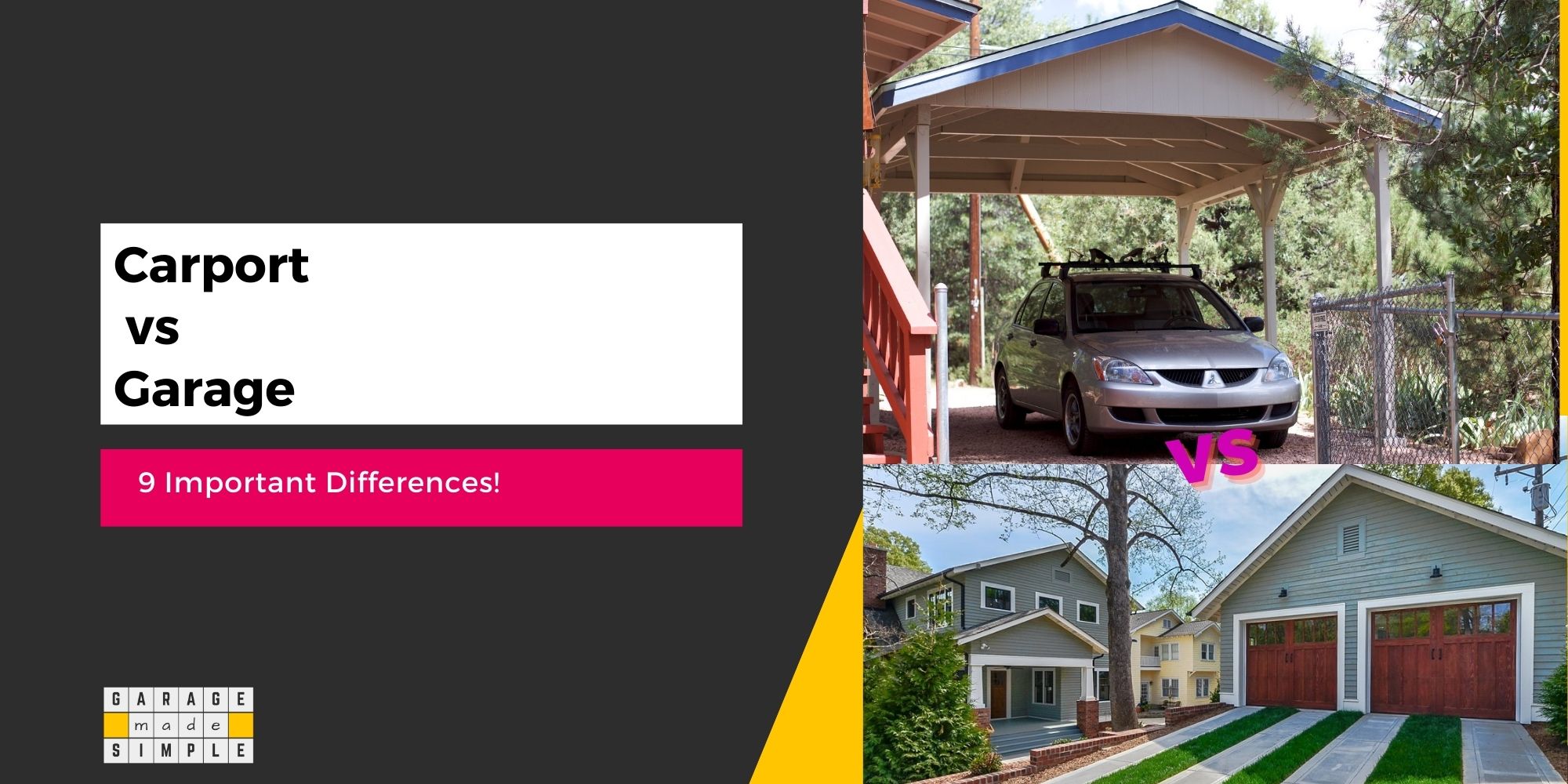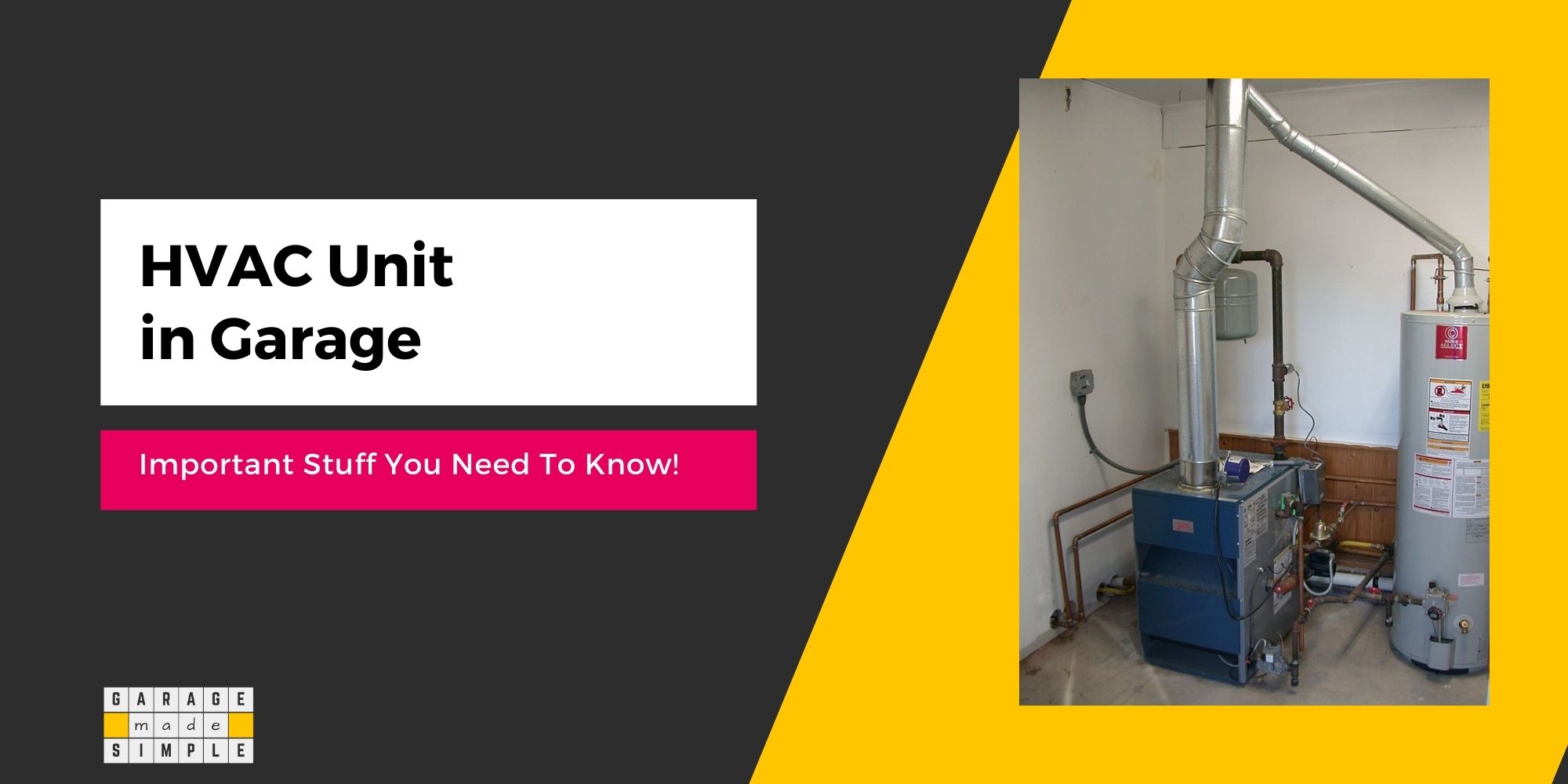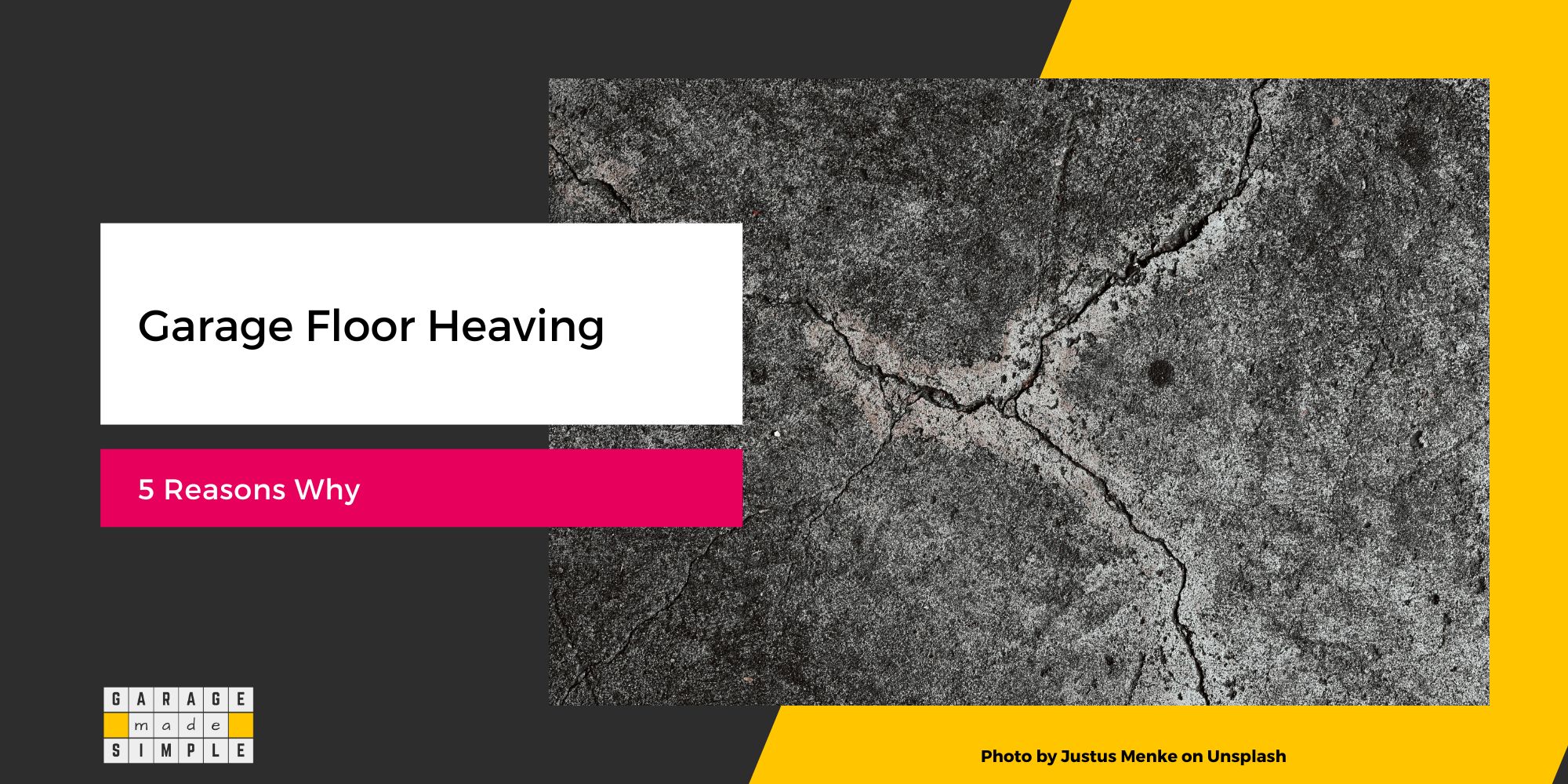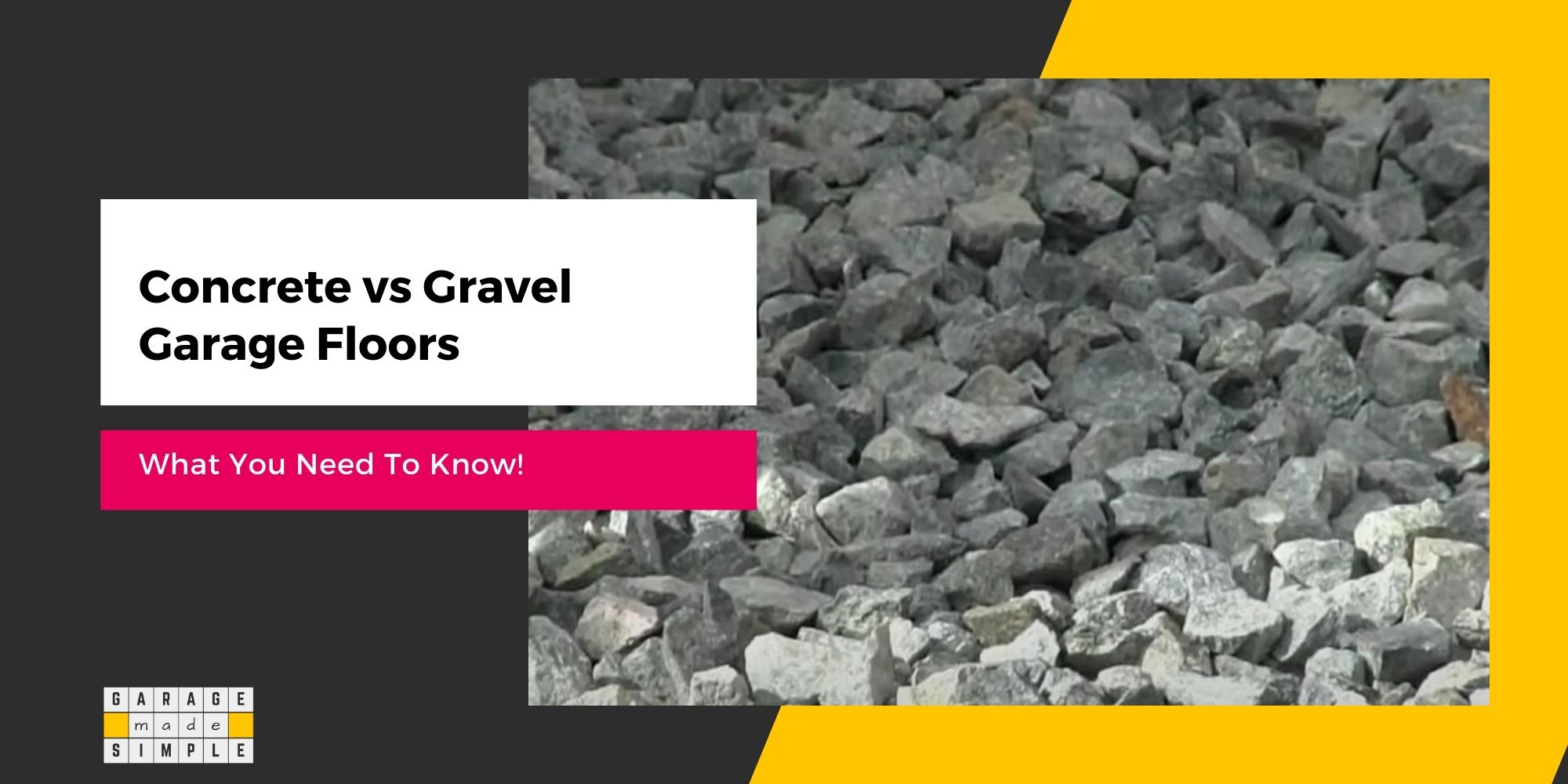Best Concrete Mix For Garage Floor: The Ultimate Guide
As an Amazon Associate, I earn from qualifying purchases.
Choosing the Best Concrete Mix for Garage Floor
When building a new garage or renovating an existing one, floor strength and durability are critical. Garage floors endure significant loads, abrasion, and chemical spills.
Ensure you choose the best concrete mix for the garage floor.
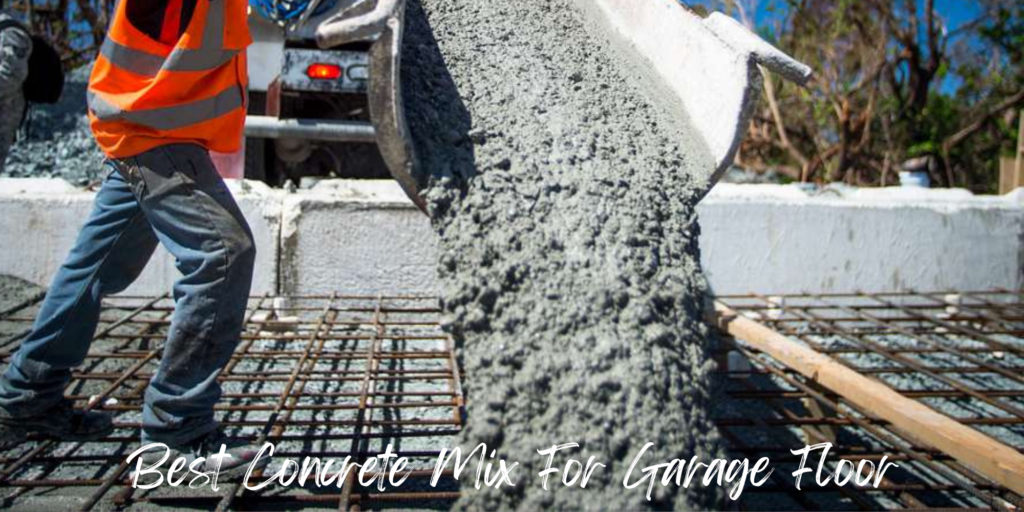
This guide outlines the essential considerations for selecting and preparing the best concrete mix for your garage floor.
With the right concrete mix and construction practices, you can create a garage floor that stands the test of time.
Understanding Concrete Compressive Strength (psi)
According to the 2021 International Residential Code (IRC), the compressive strength of a garage floor slab should range from 2,500 to 3,500 psi, depending on the climate zone’s weathering potential.
However, for practical purposes, a compressive strength of 3,500 psi is recommended for most garage floors.
To achieve this strength, the ideal concrete mix ratio is:
- 1 part cement
- 2.5 parts sand
- 3 parts aggregates
- 0.5 part water
This mix provides a balance of durability, workability, and resilience under the weight of vehicles and exposure to varying weather conditions.
Factors Influencing Concrete Strength
The strength of a concrete slab depends on several key factors, including:
- Water-Cement Ratio
Lower water content generally leads to stronger concrete, as excessive water weakens the bond between particles. - Cement-Aggregate Ratio
The balance between cement and aggregates affects durability and compressive strength. - Quality of Ingredients
High-quality cement, sand, water, and aggregates are essential for achieving the desired strength and longevity. - Concrete Additives
Additives, such as plasticizers or air-entraining agents, can enhance workability and resistance to freeze-thaw cycles. - Compaction
Proper compaction eliminates air pockets and ensures a uniform, dense structure. - Curing Conditions
Controlled curing, particularly maintaining adequate moisture and temperature, significantly influences final strength.
Key Ingredients in a Concrete Mix
A concrete mix is a carefully balanced combination of cement, water, and aggregates, with optional additives or fibers to enhance its properties.
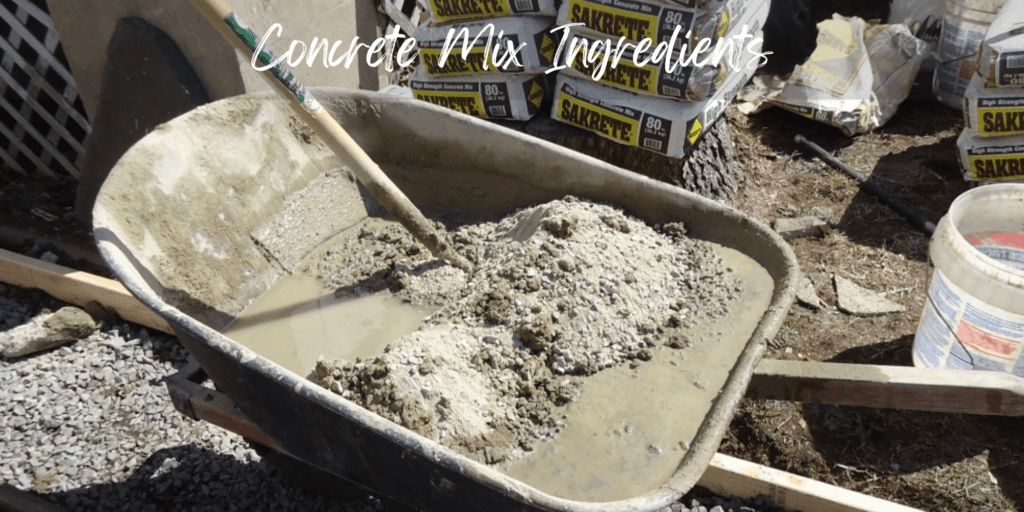
Each ingredient must be added in a certain ratio to result in the desired final strength, durability, and performance of the concrete.
Cement: The Binding Agent
Cement is the key binding agent in concrete, responsible for holding all other components together. Unlike natural materials, cement is a manufactured product made from a chemical process involving up to eight ingredients. The primary components, making up 80–98% of cement, are:
- Limestone (60–65%)
- Silica (17–25%)
- Alumina (3–8%)
Most cement plants are located near limestone deposits to ensure cost-effective production.
For a high-quality concrete mix, always choose cement from a reputable manufacturer and check the date of manufacture. Fresh cement provides better bonding strength, while older cement may weaken the final product.
Water: The Catalyst for Hydration
Water activates the hydration process, transforming the cement into a strong, durable binder. It’s critical to use clean, uncontaminated water to avoid chemical reactions that could degrade the concrete.
- Potable water (safe for drinking) is ideal and doesn’t require further testing.
- Non-potable water can also be used if:
- Its pH level is between 6.0 and 8.0.
- Harmful solids are below acceptable limits.
Avoid using seawater or brackish water, as they do not meet these criteria.
However, wash water from concrete plants is often acceptable, as its solid content is unlikely to harm the mix.
Aggregates: Providing Strength and Stability
Aggregates, such as gravel or crushed stone, are the largest component of a concrete mix and provide much of its strength and stability. Synthetic aggregates may also be used.
For a garage floor, aggregates should meet the following guidelines:
- Use coarse aggregates with a size range of ¼” to ¾”. A mix of sizes is preferable to minimize void spaces.
- Choose aggregates with a rough texture, which improves bonding.
- Ensure aggregates are hard, strong, non-flaky, chemically inert, and non-porous.
- Clean aggregates thoroughly, preferably using pressure washing, to remove dirt and dust that could weaken the mix.
Additives: Enhancing Concrete Properties
Additives, such as plasticizers, accelerators, or air-entraining agents, can be included in the concrete mix to improve workability, increase resistance to freeze-thaw cycles, or enhance setting times.
While not always necessary, additives provide flexibility for specific environmental or structural requirements.
Composition of the Concrete Mix
“.. is about 10 to 15 percent cement, 60 to 75 percent aggregate and 15 to 20 percent water. Entrained air in many concrete mixes may also take up another 5 to 8 percent.”
Source: The Portland Cement Association

6 Factors that Impact Concrete Strength
The concrete mix is a slurry and can be poured into a garage floor slab mainly because of the water and cement paste.
Water and cement are essential in the concrete mix but the ratios in which they are added influence the ultimate compressive strength. when the concrete hardens.
The strength of a building material is measured in PSI (pounds per square inch). This is the load the material, in this case concrete, can withstand before breaking or crumbling.
Compressive Strength is the ability of concrete to withstand a load that is pressing into the concrete. Concrete slabs, such as in garage floors have pretty high compressive strength.
Tensile strength, on the other hand, is the ability of concrete to resist breaking or cracking under tension. In simpler words, high tensile strength is flexibility and low tensile strength is brittleness.
Concrete with a compressive strength of 4000 psi may have tensile strength of just 400 psi.
The compressive strength of concrete depends on six important factors.

Factor #1: Water Cement Ratio
The water-to-cement ratio in the concrete mix is possibly the most important factor. As a thumb rule, the compressive strength of concrete goes up as the water-to-cement ratio goes down.
“There’s an inverse relationship between the eventual compressive strength of concrete and the amount of water used in the mix—the higher the water-cement ratio, the lower the strength.”
CONCRETE CONSTRUCTION
2021 International Residential Code (IRC) specifies “Minimum Specified Compressive Strength” for garage floor slabs and recommends that the water to cement ratio be kept at 0.5 or lower.
At this compressive strength level the garage slab can take all the load of your cars, furniture, what have you.
However, a garage slab that is 6″ or thicker will need rebar reinforcement for providing adequate tensile strength.
Factor #2: Cement Aggregate Ratio
To get the right concrete mix for a garage floor, you want the concrete mix to be workable so that it can be placed, but at the same time, you want the concrete slab to have the recommended compression strength.
You have to find the right ratio between the three ingredients; namely cement, aggregates, and water.
For a desired workability, if the cement aggregate ratio can be increased without an increase in the water-cement ratio then the concrete mix will result in a higher-strength concrete floor.
Actually, it is possible to increase the cement aggregate ratio such that the water-cement ratio reduces without any adverse effect on workability.
So concrete mix designers have to find the sweet spot for
- Water Cement Ratio
- Cement Aggregate Ratio
- Concrete Mix Workability
- Concrete Compressive Strength
Factor #3: Quality of Ingredients
This is true for almost anything. The quality of the individual ingredients in any recipe has a direct bearing on the quality of the final dish.
We all know that even a Michelin-star chef can not make a great dish with substandard ingredients.
Likewise in the case of concrete. The strength of the concrete will depend a lot on the three main ingredients of the concrete mix; cement, water, and aggregates. I have already talked about these in the earlier section.
Factor #4: Concrete Additives
Specific concrete additives can be used to modify the properties of the concrete mix for a garage floor and that can increase the strength of the concrete.
Superplasticizers, for example, can be used to reduce the water-cement ratio and yet allow the concrete mix to be workable. This will increase the concrete strength.
Factor #5: Compaction
As mentioned above, concrete also contains 5-8% of entrapped air. Air entrainment in the concrete mix is required for better workability. However,
An increase in the volume of air voids by 1% reduces the strength by 5%
STRUCTURAL GUIDE
Compaction is the process by which the entrapped air is released after the concrete mix has been poured. The voids are reduced and the poured concrete mix becomes denser, which is more compact.
Factor #6: Curing Conditions
In addition to factors pertaining to the concrete mix itself, the strength of the concrete is influenced by the curing time & process. Some key factors to keep in mind are:
- Curing Time – Concrete Mix for the Garage Floor is considered fully cured 28 days after placement (under normal environmental conditions). However, concrete continues to gain strength even after that. The incremental gain is small, though.
- Relative Humidity – Concrete gains strength through the hydration process. In case the humidity is low the concrete will dry out and the hydration process will stop.
- This is the reason concrete slabs need to be “ponded” during the curing period, especially in hot, dry zones.
The 6 Important Factors that Result in the Best Concrete Mix For Garage Floor
| Factor | Description | Effect on Compressive Strength |
|---|---|---|
| Water-Cement Ratio | The ratio of water to cement in the concrete mix. | Inverse relationship. Lower water-cement ratio results in higher compressive strength. |
| Aggregate-Cement Ratio | The ratio of aggregates to cement in the concrete mix. | Inverse relationship. Lower aggregate-cement ratio results in higher compressive strength. |
| Quality of Ingredients | The quality of the individual ingredients in the concrete mix. | Direct relationship. Higher quality ingredients result in higher compressive strength. |
| Concrete Additives | The use of concrete additives in the concrete mix. | Can increase compressive strength. |
| Compaction | The process of compacting the concrete mix after it is poured. | Increases compressive strength by reducing voids. |
| Curing Conditions | The conditions under which the concrete mix is cured. | Longer curing time and higher humidity result in higher compressive strength. |
Determining the Ideal Concrete Mix Ratio
Most residential projects use 3000 psi, 3500 psi, or 4000 psi strength concrete. You may also use 2500 psi strength concrete where the loads are going to be really light.
Cement, sand, and aggregates (such as crushed stone or gravel) along with water are the essential ingredients of any concrete. The concrete strength (in psi) is largely dictated by the concrete mix ratio of the 3 solid ingredients.
The concrete mix ratio is written as three numbers (for example 1:2:3). The first number is always cement. The second number is always sand. And the third number is always aggregates, such as gravel. The ratio of water is typically 0.5 or a bit less.
Concrete Mix Ratios for Different Strengths
| Strength (psi) | Mix Ratio | Best For | Examples |
| 2,500 | 1:2:4 | Exteriors, Very Light Loads | Slabs for Sheds, Fence Posts, Walkways, Sidewalks, etc. |
| 3,000 | 1:3:3 | Interiors, Light Loads, Warm Climates | Steps, Counter Tops, Light Duty Beams & Columns, etc. |
| 3,500 | 1:2.5:3 | Interiors, Moderate Loads, Warm Climates | Residential Foundations & Footings, Garage Floors, Driveways in Warm Climates, Medium Duty Beams & Columns, etc. |
| 4,000 | 1:2.:3 | Exteriors, Heavy Loads, Cold Climates | Commercial Foundations & Footings, Commercial Space Floors, Driveways in Cold Climates, Patios & Decks, etc. |
The above shows that a concrete mix ratio of 1:2.5:3 is ideal for garage floors.
Understanding Water-Cement Ratio
The water-cement ratio is water weight divided by the cement weight in a concrete mix. It significantly influences the hydration process of cement and, consequently, the strength and durability of the concrete.
Key Points:
- Lower Water-Cement Ratios: Lead to higher compressive strength because they result in denser concrete with fewer voids.
- Higher Water-Cement Ratios: Increase workability but decrease compressive strength due to more voids formed in the hardened concrete.
Compressive Strength vs. Water-Cement Ratio (Indicative)
| Water-Cement Ratio | Compressive Strength (psi) |
|---|---|
| 0.30 | 6000 |
| 0.35 | 5500 |
| 0.40 | 5000 |
| 0.45 | 4500 |
| 0.50 | 4000 |
| 0.55 | 3500 |
| 0.60 | 3000 |
Meeting Building Code Requirements
The best concrete mix for the garage floor is the one that has the correct concrete strength (psi).
The 2021 International Code Council (ICC) under Chapter 4, Section R402.2 and Table R402.2 lists the “Minimum Specified Compressive Strength” for garage floor slabs as:
| Weathering Potential | Compressive Strength (PSI) |
| Negligible | 2500 |
| Moderate | 3000 |
| Severe | 3500 |
Check out Figure R301.2(3) of the IRC Code for the Weathering Potential Map.
The code specifies that the maximum weight of fly ash, other pozzolans, silica fume, slag, or blended cements that is included in concrete mixtures for garage slabs and for exterior porches, carport slabs and steps that will be exposed to deicing chemicals shall not exceed the percentages of the total weight of cementitious materials specified in Section 19.3.3.4 of ACI 318.
Materials used to produce concrete and testing thereof shall comply with applicable standards listed in chapters 19 and 20 of ACI 318 or ACI 332. ACI is The American Concrete Institute.
Frequently Asked Questions (FAQs)
What Is the Best Base for a Concrete Garage Floor?
The best base for a concrete garage floor is a minimum of 4 inches of compacted hardcore topped with a 4-inch concrete slab, which should be 3 inches larger than the building on all sides for proper drainage.
Do I Need a 4 or 6-Inch Concrete Slab for a Garage?
A minimum thickness of 4 inches is sufficient for typical residential garages, but a 6-inch slab is recommended for added durability, especially if heavy loads are expected.
What Does C30 Concrete Mean?
C30 concrete refers to a mix that can withstand a compressive strength of 30 Newtons per square millimeter after curing. It is commonly used for garage floors and light structural applications.
What Grade of Concrete Is Used for Garage Floors?
C30 is the standard grade of concrete used for garage floors, providing adequate strength for typical residential use. For heavier applications, C40 may be recommended.
Thank you very much for reading the post. I do hope you found it informative and useful.

